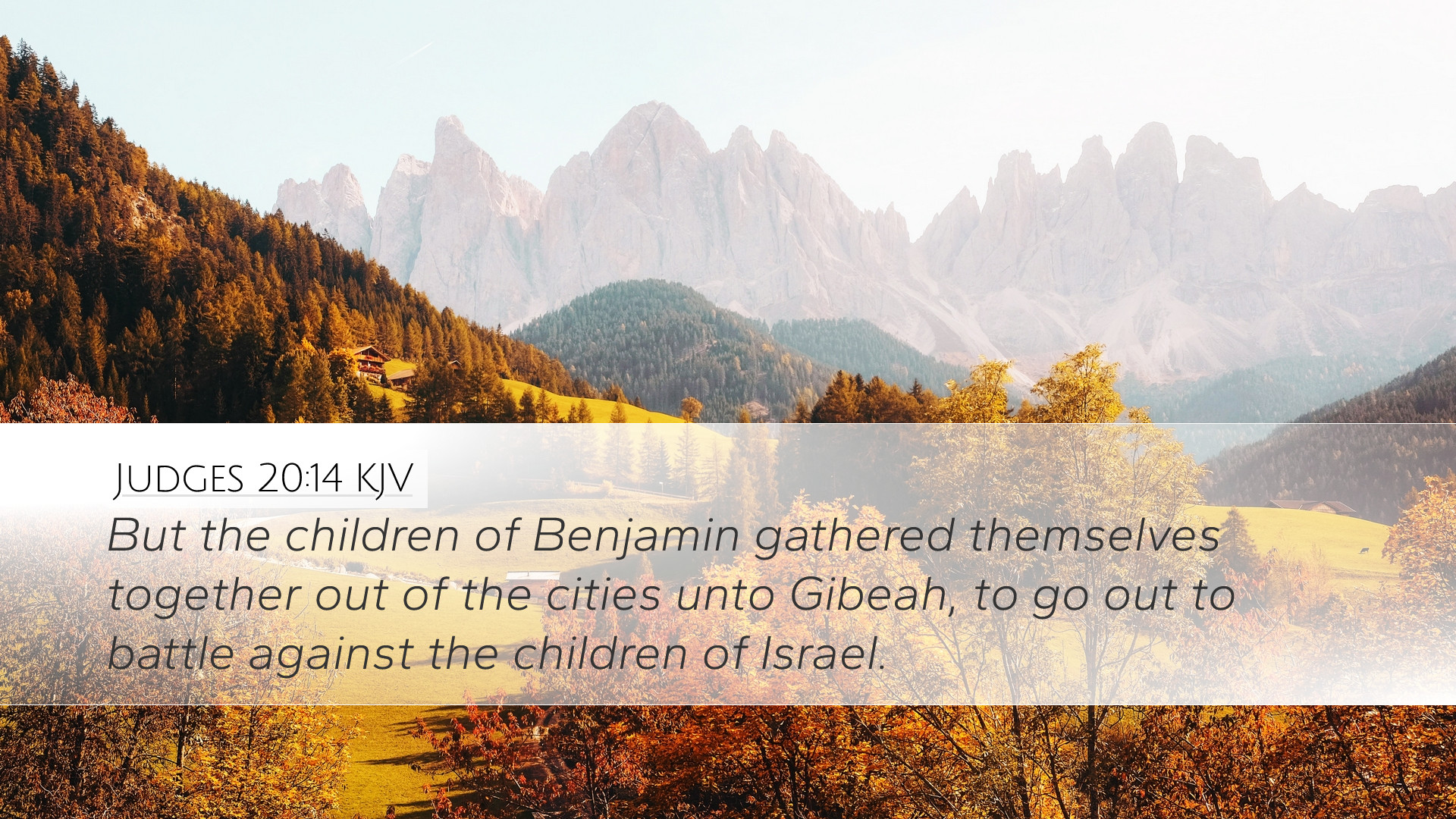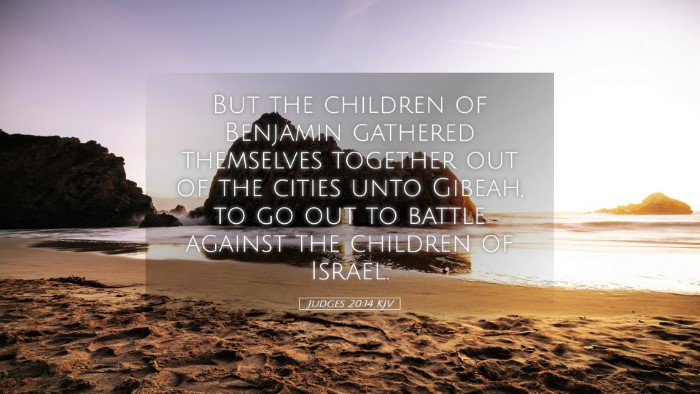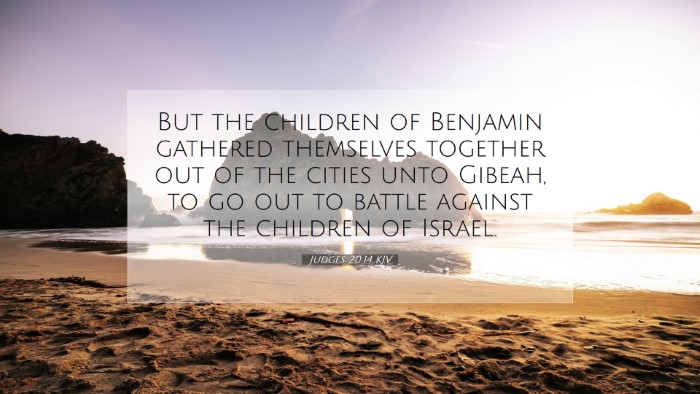Commentary on Judges 20:14
Verse Context: Judges 20:14 states, "But the children of Benjamin gathered themselves together out of the cities unto Gibeah, to go out to battle against the children of Israel."
General Overview
This passage occurs within a broader narrative in the Book of Judges, illustrating a troubling period in Israel's history characterized by moral decay and civil strife. The actions of the tribe of Benjamin in this verse set the stage for a significant conflict among the tribes of Israel, reflecting themes of unity, justice, and the dire consequences of sin.
Commentary Insights
1. Historical Background
Matthew Henry highlights that this confrontation was precipitated by the grievous crime committed in Gibeah, where a Levite's concubine was raped and killed. The subsequent gathering of Israelites to avenge this atrocity illustrates a collective response to injustice.
Albert Barnes notes that the decision of the tribe of Benjamin to rally for battle indicates their unwillingness to submit to justice and their solidarity in defending their city and actions despite the moral reprehension surrounding the incident.
2. Theological Implications
Adam Clarke draws attention to the spiritual state of Israel during this time, asserting that the lack of a king led to an absence of moral authority. The civil war resulting from Benjamin's actions serves as a metaphor for the anarchy that can ensue in the absence of godly leadership.
This passage emphasizes that God’s people are called to justice, and when they do not act, they fail in their covenant responsibilities. The gathering of Benjamin portrays the danger of tribal loyalty overtaking the collective moral obligation to uphold righteousness.
3. The Nature of Conflict
The initiation of hostilities as described shows the escalating tensions within Israel. Matthew Henry comments that such battles between brethren are tragic, highlighting that conflict often arises from moral failures and sin within the community.
Albert Barnes further elaborates on this conflict as not merely a physical battle but a representation of the internal struggle within God’s people when they are divided on issues of righteousness and justice.
4. Call to Righteousness
In this violent confrontation, there lies a call for the church today to evaluate its own conflicts. Adam Clarke suggests that this passage invites reflection on how congregations handle internal disputes, urging leaders to seek peaceful resolutions anchored in scriptural truths rather than succumbing to tribalism or factionalism.
Matthew Henry concludes that the unity of the church, as well as individual communities, should stem from a shared commitment to justice and righteousness as prescribed by God’s Word.
Practical Applications
- Reflect on Leadership: Leaders must embody the principles of justice and accountability, guiding their communities in times of moral crises.
- Unity in Diversity: Acknowledge the dangers of division and work towards unity, promoting dialogue over discord within congregations.
- Justice as a Covenant Community: The church’s response to injustice should reflect a commitment to God’s standards, challenging any tendency to overlook sin in the name of tribal loyalty.
- Spiritual Vigilance: Just as the Israelites were called to bear arms against moral decay, so too should the contemporary church remain vigilant against ethical failures within its midst.
Conclusion
Judges 20:14 encapsulates a pivotal moment in Israel's history, emphasizing the necessity of justice, moral integrity, and unity. The generations to follow should heed these lessons, ensuring that balance and righteous conduct are core principles guiding their actions and decisions. The insights from the public domain commentaries provide a profound understanding for pastors, students, theologians, and Bible scholars to grapple with the complexities of faithfulness in a world fraught with conflict.


